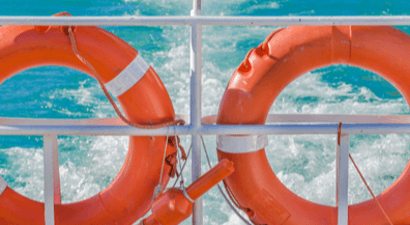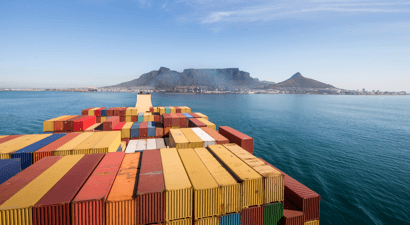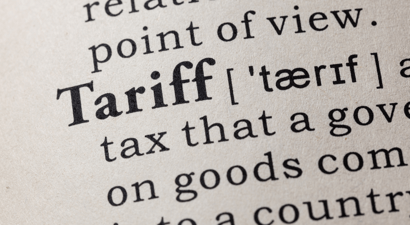International Transport, Trade & Energy Update, South African Belatedly Brings Pollution Legislation Up to Date 30 April 2014
In 2005 the Republic of South Africa ("the Republic") acceded to the 1992 Civil Liability Convention and the 1992 Fund Convention ("the Conventions"). Despite the accession to The Conventions they have no force of law in the Republic as the necessary enabling legislation, although enacted by our Parliament and assented to by the state President, has yet to be promulgated.
Despite dire warnings from concerned Industry and Environmental groups that the Republic with its long ecologically sensitive coastline and unfriendly seas, plus the fact that most of its energy requirements are supplied from imported oil products carried by sea, was uniquely exposed to potential catastrophic oil pollution from the many shipping casualties that are experienced annually, the Authorities seemed to remain unmoved.
The Republic finally took the necessary steps to implement the Conventions thereby realising its national and international obligations to the maritime industry (and to protect its environment) by assenting to various pieces of enabling legislation that will give force and effect to the Conventions.
The following legislation was assented to by the President of the Republic:
- Merchant Shipping (Civil Liability Convention) Act 25 of 2013 ("the Civil Liability Act") (assented to on 9 December 2013);
- Merchant Shipping (International Oil Pollution Compensation Fund) Act 24 of 2013 (assented to on 9 December 2013) ("the Fund Act");
- Merchant Shipping (International Oil Pollution Compensation Fund) Contributions Act 36 of 2013 (assented to on 21 December 2013); and
- Merchant Shipping (International Oil Pollution Compensation Fund) Administration Act 35 of 2013 (assented to on 14 December 2013).
The Civil Liability Act has enacted the 1992 Civil Liability Convention holus bolus into our domestic law save for limited deletions of certain provisions of our Marine Pollution (Control and Civil Liability Act) Act 2 of 1986 ("the CLC Act"). These provisions deal with the issue of certificates and claims against underwriters. The CLC Act, prior to the inception of the Civil Liability Act, regulated the liability of ship owners in general (i.e. its application was not limited to tankers) with regard to pollution by oil.
The provisions of the CLC Act dealing with liability have not been repealed or amended and so there is extensive overlap between its application and that of the 1992 Civil Liability Convention. Although our courts will, in circumstances where there are irreconcilable differences between the CLC Act and the 1992 Civil Liability Convention, regard the provisions in the former as having been revoked, potential areas of uncertainty, and hence conflict, will inevitably remain.
The Fund Act has enacted the 1992 Fund Convention into our domestic law which provides the Republic with much anticipated cover for potentially substantial claims arising from oil pollution, the right of recovery afforded under the CLC Act being woefully inadequate. The Republic has however not acceded to Supplementary Fund Protocol.
Cover pursuant to the 1992 Fund Convention is of course premised on the payment of levies imposed on importers of oil into the Republic. Much of the delay in the enactment of the abovementioned legislation was due to indecision amongst the relevant government authorities as to how, and more particularly whom, would administer the collection of these levies.
The Merchant Shipping (International Oil Pollution Compensation Fund) Contributions Act 36 of 2013 ("Contribution Act"), imposes a levy on any person who, during a tax period (defined as a calendar year), receives in excess of 150 000 metric tons of "contributing oil" ( defined as crude oil or fuel oil) which is either transported by sea to a port or terminal installation within the Republic or discharged in a port or terminal installation of a non-contracting state of the 1992 Fund Convention and thereafter transported into the Republic by other means. Provision is made for the eventuality that, in the case of corporate entities, any of its subsidiaries, receive in excess of 150 000 tons of contributing oil during a tax period, each entity will be liable to pay the levy for the actual quantity of oil received by that entity, despite the fact that the quantity did not exceed the prescribed tonnage.
The amount of the levy to be imposed for a particular tax period and the date on which it is to be paid is to be determined by the Minister of Transport by way of notice in the Government Gazette. When determining the levy, the Minister is required to take the following into account:
- The contributions calculated and invoiced by the Director of the Fund in terms of Article 12 of the 1992 Fund Convention in respect of the tax period; and
- The volume of the contributing oil imported in the tax period.
As alluded to in the introductory paragraph, despite the enactment of the enabling legislation, South Africa remains at risk as the date of commencement of the enabling legislation has yet to be promulgated. For some time, and in anticipation of the relevant conventions coming into force, certain (predominantly foreign) importers of oil into the Republic have been paying levies to the Fund. However, failing promulgation of the necessary legislation, and consequently collection of all levies due, there is arguably no legal obligation on the Fund to indemnify South Africa for a major pollution incident and we remain at risk.
Once promulgated, the above legislation will have a profound impact for the Republic in ensuring that it is financially secured for liability and compensation for loss or damage caused by contamination resulting from the escape or discharge of oil from an oil tanker. In the interim, and while the date of enactment of the above legislation has yet to be proclaimed, there still remains substantial financial implications for the Republic should an incident occur during the intervening period.
Vanil Bagwandeen, Associate
Contact: +27(0)31 575 7309 or vbagwandeen@wylie.co.za
Edmund Greiner, Partner
Contact: +27(0)21 419 6495 or greiner@wylie.co.za

 EXERCISE IN RICHARDS BAY)



